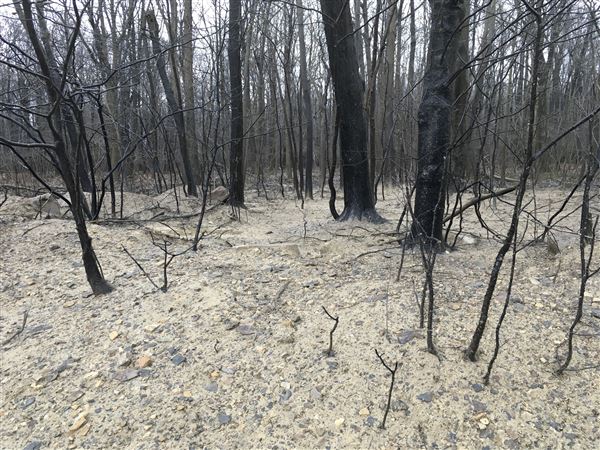From the Appalachian Trail to the Allegheny National Forest, a wide swath of Pennsylvania could benefit from a new federal initiative to preserve, restore and reinvigorate natural ecosystems and new economies throughout the mountains of the mid-Atlantic region.
The Mid-Atlantic Highlands Action Program, a multi-state partnership administered by the U.S. Environmental Protection Agency, is a first-ever attempt to coordinate environmental conservation and economic revival in the middle of the Appalachian range.
The governors of Pennsylvania, West Virginia, Maryland and Virginia announced yesterday they had signed the charter formally establishing the partnership mandated by an act of Congress in 2001.
Gov. Ed Rendell said the program, which in many ways parallels the state's Pennsylvania Wilds eco-tourism project in northern-tier counties, will seek to balance the region's array of recreational opportunities with various economic interests.
"Our challenge," he said, "is to seek common ground and develop policies that will manage the many demands on this land, while preserving the natural beauty and heritage of the Appalachian Mountains."
The states, under the coordination of the EPA and using an initial $2.5 million federal grant, will survey the region's ecologically important highlands areas and identify pilot projects to aid ongoing community conservation efforts and local economies.
"It's a fairness return for Appalachia," said Paul Zeph, the Pennsylvania Department of Environmental Protection's program coordinator. "For many years the resources of the Appalachian region -- coal, other minerals, timber -- have been extracted, leaving behind damaged ecological landscape and economically devastated communities.
"This program envisions helping those communities restore their ecosystems and the economies that would come with mine reclamation or rails-to-trails projects or stream restorations."
Mr. Zeph said the Highlands program is the first multi-state ecological conservation effort by the EPA that is not focused on an estuary or a bay, like the Chesapeake Bay restoration program.
"Once we identify the important ecological hubs and corridors in each state and the projects in those areas that would benefit from added attention, we'll be able to go back to Congress for funding," Mr. Zeph said. The coordinators hope to make the initial project selections by the end of the year.
In Pittsburgh, Mr. Zeph said, he has already been working with the Western Pennsylvania Conservancy to identify such projects.
Elsewhere in Pennsylvania, the new program might aid local efforts on the Kittatinny Ridge near Harrisburg where the Blue Mountain/Kittatinny Ridge Conservation Project is already guiding the efforts of 24 local organizations to protect land along the globally important migration route for eagles and hawks.
It also might support the Appalachian Trail Protection Initiative, which is working with the Appalachian Trail Conference to protect land adjacent to the trail from development.
In Virginia and West Virginia, the program could partner with local communities to restore streams degraded by mining and help bring in tourists.
"The cultural richness of our region is dying because people are not finding jobs and are leaving," said Maurice Henderson, a spokesman for Virginia Gov. Timothy Kaine. "Virginia and the region have eco-tourism spots that have great potential and through this program we hope to find ways to help communities clean up ecosystem problems and turn around their economies."
Mr. Zeph said the program is designed to give local economic restoration efforts a boost by emphasizing the ecological restoration and preservation of a globally significant landscape -- the Appalachian Mountain range.
"We want to make sure the forests and stream systems of the Appalachians are brought back to their fullest extent," he said. "We're just getting started, but the vision is to protect the areas where there are important plants and animals, help secure those places and help the communities rebound economically."
First Published: April 13, 2007, 3:15 a.m.















